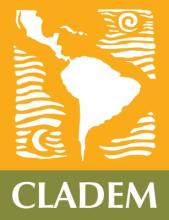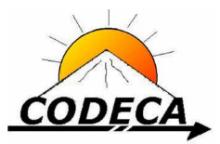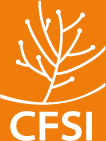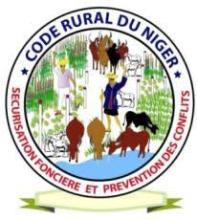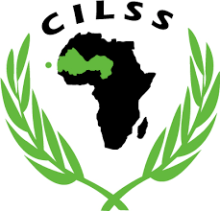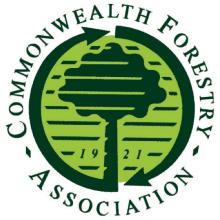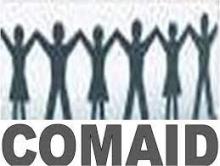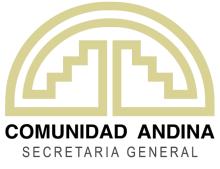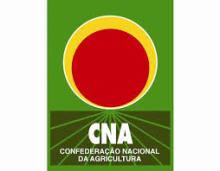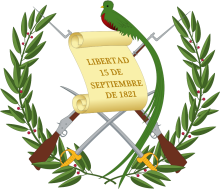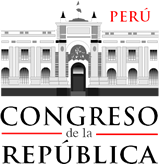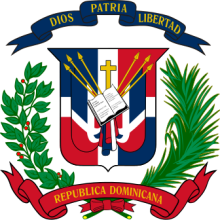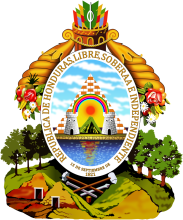La Biblioteca de la Tierra incluye recursos de más de 1.890 proveedores de información nacionales e internacionales. Aprenda más sobre las organizaciones e instituciones que utilizan el Land Portal para compartir sus investigaciones, datos e historias con acceso abierto.
Comité de América Latina y el Caribe para la Defensa de los Derechos de la Mujer
Red regional que articula a personas y organizaciones no gubernamentales de América Latina y el Caribe para la promoción, vigilancia y defensa de los derechos humanos interdependientes e integrales de las mujeres desde el campo socio-jurídico, con una perspectiva feminista, en una dinámica que interconecta los planos locales, regionales e internacionales.
Obtiene el Status Consultivo en la categoría II ante la Comisión Económica y Social de las Naciones Unidas desde el año 1995, y está facultada para participar en las actividades de la Organización de Estados Americanos (equivalente de la OEA al Status Consultivo) desde el año 2002.
CLADEM está compuesta por:
- CLADEMS Nacionales.
- Enlaces.
- Coordinación Regional.
- Oficina Regional.
Comité de Desarrollo Campesino
| El Comité de Desarrollo Campesino CODECA- es una organización de campesinos y campesinas indígenas. Surge en 1992 a raíz de la necesidad de vivir dignamente y cultivar la tierra, lo cual es negado por las malas condiciones laborales en el campo. Del total de familias miembros de CODECA, el 95% son familias campesinas sin tierras que trabajan como jornaleros en las fincas ó emigran en busca de trabajo en diferentes lugares.
Su misión es impulsar el desarrollo rural a través de la participación social, la propuesta concertada y la incidencia efectiva en políticas públicas en el marco de procesos incluyentes y participativos de transformación social, la construcción de la paz y la democracia. CODECA está afiliada a las siguientes redes: - Unidad Nacional de Organizaciones y Comunidades ProDerechos Humanos. |
|
|
Objetivos: |
|
| - Mejorar las condiciones de vida de la población campesina, a través del impulso de un proceso de desarrollo rural construido participativamente, con fundamentos de equidad e inclusión social. - Incidir en la orientación de políticas públicas vinculadas al impulso del desarrollo rural, mediante la participación con equidad, y la inserción de sectores marginados y excluidos, en los procesos organizativos, reivindicativos y de propuesta. - Promover el poder local y elevar la capacidad de incidencia de CODECA en el impulso del desarrollo rural. |
|
|
|
|
| Lineas de investigación: | |
| CODECA organiza su trabajo alrededor de 5 grandes áreas que corresponden en los 5 programas que CODECA sigue, y son:
- Programa de Tierra y Desarrollo. Los beneficiarios (grupos destinatarios) del trabajo de CODECA son: Comités indígenas y campesinos, trabajadores jornaleros, campesinos sin tierra, grupos de mujeres. |
Comité Ecuménico de Proyectos
Nacido en 1973, el Comité Ecuménico de Proyectos (CEP) surgió en un momento embrionario de la conformación y desarrollo, tanto de los movimientos sociales como de las organizaciones no gubernamentales y de la cooperación internacional de solidaridad. Es una instancia de vinculación, apoyo y consulta para agencias externas de cooperación y para organizaciones sociales ecuatorianas. En su asesoramiento el CEP busca priorizar aquellas iniciativas que prometan tener capacidad de modificar una situación dada.
Al conformarse como un espacio ecuménico, se abrió a las distintas corrientes de iglesia y de instituciones que actúan partiendo de valores humanísticos, comprometidas con los movimientos sociales ecuatorianos.
Actúa con un equipo ejecutor pequeño y ágil, conformado por siete personas (tres técnicos y cuatro administrativo-financieros); cuenta con el aporte de consultores contratados para tareas especializadas. Una asamblea ampliamente representativa está integrada por mujeres y hombres profesionales de excelencia, conocedores de las diversas realidades del país.
Servicios
- Evaluación intermedia y final de proyectos, ya sea organizando y coordinando dichas evaluaciones, así como participando o ejecutando éstas.
- Asesoría en planificación estratégica, seguimiento y evaluación.
- Análisis organizacional.
- Diseño, gestión y administración operativa de fondos y proyectos especiales.
- Elaboración de análisis sectoriales o de coyuntura.
- Publicaciones.
- Organización de encuentros y seminarios nacionales o internacionales.
- Gestión y monitoreo de auditorías externas a las contrapartes.
- Preparación de giras y acompañamiento a representantes de agencias en sus visitas al país.
- Preparación y acompañamiento a periodistas o grupos en viaje de estudio.
Comité Français pour la Solidarité Internationale
Le CFSI regroupe 20 organisations agissant pour la solidarité internationale. Les membres du CFSI s’unissent pour affronter ensemble et avec leurs partenaires des pays du Sud les enjeux du futur :
- la justice sociale pour réduire la pauvreté et les inégalités croissantes ;
- l’économie au service de l’Homme et non pas l’inverse ;
- le partage équitable et la gestion durable des ressources naturelles de la planète.
Convaincu du rôle moteur des organisations de la société civile, le CFSI appuie des projets menés par des associations partenaires de ses membres dans différents pays. Ce sont ces organisations locales qui trouvent des solutions pour influer sur les politiques et améliorer la situation des plus pauvres. Le CFSI leur propose des partenariats et un soutien pour s’organiser, renforcer leurs compétences, gagner en autonomie et être les acteurs de leur propre développement.
En 2015, le CFSI a soutenu une centaine de projets, principalement en Afrique. Ils visent en priorité le développement de l’agriculture vivrière pour lutter contre la faim, l’insertion économique des jeunes générations par une formation professionnelle adaptée et le renforcement des organisations locales.
Complétant son engagement international, le CFSI se fait l’écho des préoccupations des acteurs de terrain et des organisations partenaires au Sud en menant chaque année, en France et en Europe, la campagne ALIMENTERRE pour sensibiliser l’opinion publique et les responsables politiques aux causes de la faim et aux moyens de la combattre. Le temps fort de la campagne grand public est le festival de films ALIMENTERRE entre le 15 octobre et le 30 novembre chaque année.
Comité National du Code Rural du Niger
Quel est le rôle du Comité National du Code Rural ? Comment est-il structuré ?
Le Comité National du Code Rural (CNCR) est chargé de l’élaboration, de la vulgarisation et du suivi de l’application des principes d’orientation du Code Rural.
Le Comité National du Code Rural est structuré en organes :
- Un bureau exécutif du Comité,
- Un secrétariat permanent national,
- Un comité consultatif
Comité permanent Inter-Etats de Lutte contre la Sécheresse dans le Sahel
Le Comité Permanent Inter-Etats de Lutte contre la Sécheresse dans le Sahel (CILSS) a été créé le 12 septembre 1973 à la suite des grandes sécheresses qui ont frappé le Sahel dans les années 70. Il regroupe de nos jours treize (13) États membres dont : 8 États côtiers (Bénin, Côte d’ivoire, Gambie, Guinée, Guinée-Bissau, Mauritanie, Sénégal, Togo) ; 4 États enclavés (Burkina Faso, Mali, Niger, Tchad) et 1 État insulaire (Cap Vert).
Le mandat ou l’objectif général qui guide l’action du CILSS est de s’investir dans la recherche de la sécurité alimentaire et dans la lutte contre les effets de la sécheresse et de la désertification, pour un nouvel équilibre écologique au Sahel à travers :
- - La formulation, l’analyse, la coordination et l’harmonisation des stratégies et politiques ;
- - Le renforcement de la coopération scientifique et technique ;
- - La collecte, le traitement et la diffusion des informations ;
- - Le renforcement des capacités des différents acteurs, y compris le secteur privé ;
- - La capitalisation et la diffusion des expériences et acquis ;
- - L’accompagnement dans la mise en ouvre des stratégies, politiques et programmes.
Comité Technique 'Foncier et développement'
Le Comité Technique « Foncier et développement » de la Coopération française est un groupe de réflexion et d’échanges qui associe depuis plus de 15 ans des spécialistes de disciplines et de compétences variées sous l’égide de l’Agence française de développement et du ministère des Affaires étrangères français. Ce Comité a mené de nombreux travaux ayant donné lieu à des publications. Sur financement AFD, le Comité pilote aujourd’hui le projet “Appui à l’élaboration des politiques foncières” ayant vocation à mettre à disposition des acteurs impliqués dans la mise en oeuvre des politiques foncières des cadres conceptuels et des connaissances approfondies permettant d’améliorer la pertinence des actions, afin de contribuer à des politiques foncières offrant une sécurisation aux populations. Vous trouverez dans cette espace des informations et documents sur l’actualité de ce projet et des travaux initiés par le Comité Technique “Foncier et développement”.
Commission de l'Union Economique et Monétaire Ouest Africaine
Les objectifs de l’UEMOA sont :
- Renforcer la compétitivité des activités économiques et financières des États membres dans le cadre d’un marché ouvert et concurrentiel et d’un environnement juridique rationalisé et harmonisé
- Assurer la convergence des performances et des politiques économiques des États membres par l’institution d’une procédure de surveillance multilatérale
- Créer entre Etats membres un marché commun basé sur la libre circulation des personnes, des biens, des services, des capitaux et le droit d’établissement des personnes exerçant une activité indépendante ou salariée, ainsi que sur un tarif extérieur commun et une politique commerciale
- Instituer une coordination des politiques sectorielles nationales par la mise en œuvre d’actions communes, et éventuellement, de politiques communes notamment dans les domaines suivants : ressources humaines, aménagement du territoire, agriculture, énergie, industrie, mines, transports, infrastructures et télécommunication
- Harmoniser, dans la mesure nécessaire au bon fonctionnement du marché commun, les législations des États membres et particulièrement le régime de la fiscalité.
Committee for Internally Displaced Karen People
The CIDKP was formed in 1998 to raise awareness about the plight of internally displaced Karen/Kayin people and to deliver humanitarian assistance in response to their needs.
The organization has field staff in all townships of Karen/Kayin State, as well as in parts of Tenasserim/Tanintharyi Region, northern Mon State and eastern Bago Region.
Its main programme activities include the delivery of relief assistance to displaced communities who have experienced shocks to their livelihoods.
It also supports a prosthesis workshop for people injured by landmines.
CIDKP is a cross-border humanitarian organization which was established in 1998 and provides humanitarian assistance, mine risk education and prosthesis, conducts capacity building trainings to people in remote areas, documents and publicizes the problems faced by Karen IDP communities in Myanmar with the aim to reduce their suffering. CIDKP activities in Kyauky Kyi include providing food and non-food items to the twelve villages of Khe Der village track. This project aims at providing essential assistance to conflict-affected IDPs, to support trust building and dialogue with political stakeholders at the local level in order to increase confidence in the cease fire and to expand humanitarian space.
Commonwealth Forestry Association
What we do
We are reminded on a daily basis that the natural environment in which we live is vitally important for our well-being, whether it is in the form of climate change, global warming, declining fertility or dwindling natural resources.
Sustainable forest management plays a central role in our future, which in turn requires the training and development of forestry professionals. That's where the CFA comes in. We work in all corners of the Commonwealth and beyond to promote the wise management of trees and forests, and we do this in five main ways.
First, we publish world-class science in our peer-reviewed forestry journal, the International Forestry Review, and the latest global forestry news and views in the CFA Newsletter.
Second, we facilitate networking of professional members and organisations and exchange of knowledge via our quarterly newsletter, website, Facebook page and Twitter feed.
Third, we encourage professional excellence and promote career development using a range of awards, such as the Queen’s Award for Forestry, the Young Forester Award and the Young Scientist Research Award.
Fourth, we carry out a range of specific projects in the field that have been identified by our membership.
And fifth, we promote capacity building by helping to organise training courses, workshops, and conferences.
We are also the home to the secretariat for the Standing Committee on Commonwealth Forests, which is comprised of representatives of all of the forest departments from throughout the Commonwealth. The committee provides a unified voice on forestry matters to governments and international meetings and organises the Commonwealth Forestry Conference, an event which takes place every four years.
Commonwealth Legal Information Institute
The Commonwealth Legal Information Institute (CommonLII) aims to provide one central Internet location from which it is possible to search - for free - core legal information from all Commonwealth countries. CommonLII will provide a common technical platform through which all Commonwealth countries can cooperatively provide access to their laws. CommonLII will assist the development of a genuinely international common law. It will support the rule of law throughout the Commonwealth, by making each country's legal system more transparent. This transparency will also support international trade and investment.
Through the development of CommonLII and the assistance of the Free Access to Law Movement developing countries in the Commonwealth will obtain assistance to create national sustainable free access to law. The Australasian Legal Information Institute (AustLII) is leading the CommonLII initiative.
We hope that you enjoy using CommonLII and find it to be a useful service. Any words of encouragement or constructive criticism are always welcome of course.
Community Assistance In Development - COMAID
COMAID works in rural communities in Cameroon, the mission is to support communities achieve sustainable development in areas of land governance, natural resource management, community empowerment.
COMAID was founded in January 2007 and registered on 3rd March 2007 by Cameroon Government with registration N0.010/E.29/1111/VOL.8/APPB.
COMAID was founded by a multidisciplinary team of very qualified and experienced development practitioners, who came together on the concept of “social exclusion” as the root cause for poverty. COMAID is committed to “making knowledge work” through inclusive development in rural and urban communities.
Vision: COMAID envisions a future of hard working and responsible community members enjoying self-sufficiency and sustainable livelihoods in a challenging environment.
Community Development Association
Community Development Association (CDA) is a highly secular, non-partisan-non-Government Development Organization (NGDO) established in the year 1985-1986 in North Western Part of Bangladesh CDA gradually has been shifted its strategic position from charity to a Right based Organization now facilitating among the poorest, landless and marginal farmers along with the plain land indigenous people (IP) including the differently able men, women &youth with a view to empower, ensure and secure access to land Rights from its inception. Initially, CDA entered voluntarily in the rural poor communities in the remotest villages in greater Dinajpur district the then and it was committed to organize the rural landless poor with the concept of Integrated Community Development Program(ICDP) and tried to unite them in several small groups at their doorsteps in several villages from 1985-86 to 1988 -89 in association with OXFAM-GB &CAFOD-APHD-Hong kong.
Later, upon the practical experience gathered from the reality CDA initiated and facilitated the small groups to reorganize them and re-strengthen their capacity to institute a village based Federation of the landless poor connecting with the village context with a view to ensure access & utilize local resources within the village to promote the sustainable livelihood through implementing of Integrated Rural Development Program (IRDP)for the period from 1989 to 1995-2004 and able to develop a people centered development model which was contributing to bring significant qualitative changes in the lives of rural poor and IPs in the Northern part of Bangladesh. CDA had a significant growing period for institutionalizing itself with an unique image of integrated approach assisted to obtain a very clear political strategy to innovate the socio-political development framework followed by the International human rights declarations leading towards the formulation of the National pro-poor policy(s) for the poverty reduction, empowerment of the rural poor, women rights, Land rights, Labor rights, Consumer’s rights ,Child rights as well as ecology and development, in relation with the National Constitutional options with the support from OXFAM-GB, NOVIB-The Netherlands, Swiss Development Cooperation(SDC) and Bread for the world-Germany. Consequently CDA itself has been inspired to design and determined its mission statement and formulated the shared vision as well as building up the unity of the landless, disempowered and the marginalized peasant’s e.g. among rural poor men, women, and the youth through building their self-help institution at the village level separately but, CDA has been playing the role of facilitating and assist to strengthen for identifying and addressing their poverty issues independently but collectively from the socio-economic, political ,cultural and ecological context. Considering such an effective mechanism to identify the local needs and demands CDA gathered more experience about the social transformation from such mobilization process by the organized people and insighted to the alignment of this process with the ICESC rights and civil and political rights. Then CDA took the opportunity to include and apply the human rights approach in its development process and start facilitation towards the Peoples Initiative for Rights Assertion(PIRA) by the village based Federation. CDA determined, its role, specified its support activities and separated its identity from the village based institutions and re-positioned having a very strong staunch upon the human rights and facilitating the united poor people to strengthen their management capacity to deal with institutional process parallel to the political and Government Administrative tiers at the local level to make the local authorities accountable at the grass-root level and a solidarity-networking process constituted with the Civil Society Organizations moving forward to the Agrarian reforms to ensure the rights having access to the public land, water ,forest along with securing rights to the natural resources for sustainable livelihood. CDA has been facilitating its technical knowledge generation support among the united rural poor and its solidarity networks at the various human resource mobilization levels on the basis of gathered experience from the practice of the micro-institutions which is already established as a protection mechanism evidently. Also, such an effective mechanism has a role to ensure the People Centered Governance towards building an effective convergence tied-up over the poor, local CSOs and the local Government in taking the Local level decision collectively. So, Institution Building (IB) is a core program of CDA in the name of Peoples Organization is constructed with the village people parallel to the local Government Institutions are attainable an unique people centered pluralistic development efforts as a tool of sustainable intervention strategy inspiring to undertake the supportive role for achieving all sorts of demand driven issues for the rural landless poor especially for defending the ancestral land of ethnic minorities and Indigenous People against the grabbers throughout the plain land including the support to the differently able persons as well. Village Based Institution Building is not only the program of CDA it is also a Process in implementing or mobilizing any People Centered activities or reform/governance issues for social change and development meaning change the lifestyle, attitude and the behavior of the rural disadvantage communities by themselves getting information about their rights as a citizen from local, national and international sources through CDA as a facilitating organization with the support from Bread for the world(Bftw)-Germany and the moral and knowledge support from the different networking organizations e.g. National, Regional and the Global civil society organizations as well.
 People Centered Development Strategy
People Centered Development Strategy
Establihed:
4th June, 1986
LEGAL STATUS
- NGOAB, Registration number: 283 dated: 16/01/1989 bureau
- Department of District Social Welfare Registration number: 258/86, dated: 14/06/1986
SHARED Vision:
An United Agrarian Society through People Centered Democracy and land Governance, which is socially just and free from all discriminations, Human Rights are established with Political stability, and Communities are economically productive with ecologically balanced Environment
MISSION
Building Institutions of the Rural disempowered landless poor, argil- Labor and the Marginal peasants including the Differently able, Old-age, Ethnic & Religious minorities and IPs to ensure and secure their access to and control over the public & Natural resources (Land, Water and Forest) with Gender equality.
OBJECTIVES:
- Reduce Hunger and Poverty
- Empower Economic, Socio-Political and Culturally.
- Capacity Building
- Promote Human Rights and Social Justice
- Protect Environmental de-gradation
PROGRAM AREAS;
- Institution Building from the village level to the constituency level..
- Right to Land, water& forest.
- Health and Food Security
- Education & Culture.
- Environment, Ecology & Sustainable Land use.
- Human Resource Management.
- Gender& equality and women rights to land.
- Networking, Alliance Building &Policy Advocacy for Agrarian Reform,
APPROACHES
- Participatory
- Bottom up Decision Making
- Human Rights(ESC HR & C& P HR)
- Learning by Doing
- Networking & linkages
STRATEGIES:
- Facilitate to Human Rights defenders (Activism).
- Advocacy and Communication.
- Integration with mass movement
- People Centered Land Governance
- Engagement in endogenous policy mobilization.
- Convergence building
INVOLVEMENT OF CDA: National Level:
- The Federation of NGOs in Bangladesh (FNB)
- Association for Land Reform and Development (ALRD)
- CAMPE for Quality Education
- Credit and Development Forum (CDF)
- PHM Bangladesh for Right to Health
- People, Land and Agrarian Reform in Northern Ecological Territory (PLANET)
Regional Level:
- Asian NGO Coalition for Agrarian Reform and Rural Development (ANGOC), The Philippines
- Asian Farmers Association (AFA), the Philippines
- Asian Health Institute (AHI),Japan.
International Level:
- International Land Coalition (ILC), Rome
- FIAN, Germany
- World Rural Forum (WRF)
- World Forum for Access to Land
- International Year for Family Farming ( IYFF+10)
Networking & Alliance Building:
In Order to ensure policy mobilization 16 nos. of local NGOs coordinated by CDA from the Northern Districts in two divisions Rajshahi & Rangpur having an alliance namely People, Land and Agrarian Reform in Northern Ecological Territory (PLAnet) facilitates as a vehicle to accelerate Peoples Centered Land Governance.
Contextual Analysis and Concept Building
Root Causes of Poverty

Communication:
Organization Name : Community Development Association (CDA)
Organization Address:
Community Development Association (CDA)
Upa-Shahar, Block # 1, House # 51
Dinajpur 5200,
Telephone number: +88 0531 64428, +88 01713 19 50 00
Fax number: Not applicable
Email Address: edcda08@gmail.com
Web Site: www.cdalpo.org
Head of organization:
Shah-I-Mobin Jinnah
Executive Director, CDA
Email : edcda08@gmail.com
Contact Person: Shah-I-Mobin Jinnah
Executive Director, CDA
Publication
Health poster:

Establish Fundamental Human Rights

WOMEN RIGHTS IN LAND & FREEDOM

Land Rights as Human Rights

Save the Earth and Climate_PLANET_VILLAGIZATION

Community Forestry International
Community Forestry International
CFI projects support forest dependent communities as sustainable managers of the world’s forest ecosystems. CFI empowers forest communities through legal, institutional, technical and financial strategies at the village, national, and global level. With the advent of recent carbon trading markets that provide financial incentives for Reducing Emissions from Deforestation and Forest Degradation (REDD), CFI is involved with helping to support community-based REDD projects to alleviate poverty and increase greater sustainability of forest resources.
Working collaboratively with villagers, technical organizations, local and national governments, scientists, policy makers and donors, CFI creates innovative partnerships to design, field test, and implement innovative community forest management systems, replicate them to other sites and use the learning and experience to inform national and international policies. CFI views community forest stewardship as an important approach to stabilizing the earth’s natural forests, adapting to change in climate, and providing important environmental services.
To view CFI’s Annual Report for 2013, click link: Annual Report
Community Land initiative (iTC)
Quem somos
De 2006 a Abril de 2009, a iniciativa para Terras Comunitárias (iTC) foi um projecto financiado por um grupo de seis doadores europeus, liderados pelo Departamento Internacional para o Desenvolvimento do Reino Unido (DfID), cobrindo as províncias de Gaza, Manica e Cabo Delgado. Entre 2009 e 2013 a sua área de cobertura expandiu para as províncias de Niassa, Nampula e Zambézia, com o financiamento do Millennium Challenge Corporation dos Estados Unidos. Desde 2013 a iTC cobre todo o país com excepção de Maputo e Inhambane. No período de Maio a Dezembro de 2014, ainda com os mesmos doadores, a iTC está numa fase de transição para se transformar em Fundaçãoiniciativa para Terras Comunitárias (iTC-F).
O principal objectivo da iniciativa é de proteger os direitos das comunidades rurais sobre a terra e promover o uso sustentável de recursos naturais, como contribuição para redução da pobreza e promoção de desenvolvimento económico no país.
A iTC procura elevar a capacidade das organizações comunitárias de base de forma a torná-las actores de desenvolvimento, especialmente a partir do uso e gestão sustentável da terra e outros recursos naturais.
:::::::::::::::::::::::::::::
KPMG has managed the Community Land Initiative (iTC) since its establishment in 2006. iTC focuses on providing financial, technical and planning services to rural communities to secure land and natural resources user rights in stimulating local economic development.
Land is the prime source of livelihood and income for Mozambique’s rural communities. Mozambique’s land and other natural resources have come under great pressure from foreign and domestic private investment in recent years as a result of relatively low population density, good land availability and high potential agricultural productivity. This creates challenges for rural communities and government to use private investments as opportunities for partnership, and sustainable local economic development, and to overcome the risks of conflict that arise when investments are not properly planned.
iTC’s objectives are threefold:
To safeguard the livelihoods of communities and social groups in the target provinces of Niassa, Nampula and Zambézia by assisting communities to secure land tenure and natural resource user rights, thereby protecting against encroachment and displacement of their rights;
To operate pro-actively in communities where the potential for conflict between the community and natural resource users/investors is highest, and
To support and assist local communities and social groups in securing their rights to potentially valuable natural resources that can be used to sustain or tap on local economic opportunities.
Community Land Scotland
Community Land Scotland was established in 2010 as a response to the need for a collective voice for community landowners in Scotland. It is a company limited by guarantee with charitable status.
Our current membership includes Scottish community landowners – owning and managing approx. 500,000 acres between them – and aspiring community landowners of varying shapes and sizes throughout Scotland.
We represent these existing and aspiring community landowners to reflect their views in promoting changes to legislation to empower communities, while acting as a point of contact for any communities in Scotland who wish to find out more about community land ownership.
Broadly, we work to represent the Scottish community landowning movement in different arenas of associated activity.
Our key objectives are to:-
- Facilitate the exchange of information, enabling groups to learn from each others’ experience and successes
- Promote the growing importance of the community landowning sector to Scotland
- Reform The Land Reform (Scotland) Act 2003 to simplify and strengthen powers to communities
- Encourage community groups to register an interest in land
- Work with communities to ease the process of communities taking ownership of public land
Community Self Reliance Center
Founded in 1993, Community Self-Reliance Centre (CSRC) has been at the forefront of land and agrarian rights campaign in Nepal. CSRC educates and organizes people who are deprived of their basic rights to land and empowers them to lead free, secure and dignified lives. Our programmes have focused on strengthening community organizations, developing human rights defenders, improving livelihoods and promoting land and agrarian reform on behalf of the land-poor farmers. Since its establishment, CSRC has constantly worked to transform discriminatory and unjust social relations by organizing landless, land poor and marginalized communities to claim and exercise their rights.
Community Self-Reliance Centre
Founded in 1993, Community Self-Reliance Centre (CSRC) has been at the forefront of land and agrarian rights campaign in Nepal. CSRC educates and organizes people who are deprived of their basic rights to land and empowers them to lead free, secure and dignified lives. Our programmes have focused on strengthening community organizations, developing human rights defenders, improving livelihoods and promoting land and agrarian reform on behalf of the land-poor farmers. Since its establishment, CSRC has constantly worked to transform discriminatory and unjust social relations by organizing landless, land poor and marginalized communities to claim and exercise their rights.
CSRC believes in strong non-violent social movements led by land-poor farmers. Policy advocacy to advance pro-poor land governance and inclusive policies is a central part of CSRC's work. CSRC believes in the power of people and collaborates with National Land Rights Forum (NLRF), a people's organization of landless, tenants and smallholder farmers and its branches at districts and the community level. Currently, in collaboration with CSRC, NLRF has been facilitating land and agrarian rights campaign in 54 districts, with a total membership of 98,275.
Vision:
A Nepali society where everyone enjoys a secure, free and dignified life.
Mission:
To empower land-poor women and men enabling them to claim and exercise their basic rights, including right to land resources,contributing to eradicating poverty and injustice.
Goal:
Land for land poor farmers and their secure livelihoods.
Comunidad Andina
¿Qué es la CAN?
Somos una comunidad de países que nos unimos voluntariamente con el objetivo de alcanzar un desarrollo integral, más equilibrado y autónomo, mediante la integración andina, suramericana y latinoamericana.
Los países que la integramos - Bolivia, Colombia, Ecuador y Perú- estamos unidos por el mismo pasado, una variada geografía, una gran diversidad cultural y natural, así como por objetivos y metas comunes.
Nuestros cuatro países presentan una gran diversidad cultural, étnica y lingüística. Poseemos riquísimas manifestaciones folklóricas y artísticas que nos unen aún más.
¿Cómo funciona la CAN?
La Comunidad Andina está conformada por Órganos e Instituciones que están articuladas en el Sistema Andino de Integración, más conocido como el SAI.
Este Sistema hace que la CAN funcione casi como lo hace un Estado. Es decir, cada una de estas instancias tiene su rol y cumple funciones específicas, por ejemplo: el Consejo Presidencial Andino, conformado por los Presidentes de Bolivia, Colombia, Ecuador y Perú, está a cargo de la dirección política de la CAN; el Consejo Andino de Ministros de Relaciones Exteriores formula la política exterior de los países andinos en asuntos relacionados con la integración y, de ser necesario, coordinan posiciones conjuntas en foros o negociaciones internacionales; la Comisión, conformada por delegados plenipotenciarios, o con plenos poderes, se encargan de formular, ejecutar y evaluar la política de integración en temas de comercio e inversiones y generan normas que son obligatorio cumplimiento para los 4 países.
La CAN cuenta con una Secretaría General que administra y coordina el proceso de integración y el Tribunal Andino de Justicia es la entidad que controla la legalidad de los actos de todos los Órganos e Instituciones y dirime las controversias existentes entre países, entre ciudadanos o entre países y ciudadanos cuando se incumplen los acuerdos asumidos en el marco de la Comunidad Andina.
El Parlamento Andino, conformado por 20 Parlamentarios elegidos por voto popular -5 por cada País Miembro- , es la instancia que representa al Pueblo; es decir, a los Ciudadanos Andinos en general. Aquí se delibera sobre la integración andina y se proponen acciones normativas que fortalezcan la integración.
Asimismo, son parte del SAI las instancias consultivas de la Sociedad Civil, como el de los Pueblos Indígenas, de los Trabajadores y de los Empresarios. La Universidad Andina Simón Bolívar, con varias sedes en la región, es la entidad educativa. Y, los organismos financieros son la Corporación Andina de Fomento y el Fondo Latinoamericano de Reservas.
Concern Worldwide
Concern Worldwide works with the world's poorest people to transform their lives.
We are an international humanitarian organisation dedicated to tackling poverty and suffering in the world’s poorest countries.
We work in partnership with the very poorest people in these countries, directly enabling them to improve their lives, as well as using our knowledge and experience to influence decisions made at a local, national and international level that can significantly reduce extreme poverty. In 2015, we positively impacted the lives of 22.5 million people.
Confederação Nacional da Agricultura
Tem base programática, história, na “Carta da Lavoura Portuguesa”, aí aprovada. De então para cá, é toda uma vida, feita todos os dias, “Sempre com os Agricultores”, como é o seu lema mais afectivo.
A sede nacional da Confederação Nacional da Agricultura localiza-se em Coimbra.
A CNA define-se como a “expressão organizada, predominantemente, dos agricultores e agricultoras das explorações agrícolas familiares”. Entre outros princípios, assume “as preocupações actuais sobre a construção de uma agricultura que responda às exigências de qualidade dos produtos, de defesa do meio ambiente, do mundo rural, da saúde, do trabalho e que promova a melhoria dos rendimentos e da qualidade de vida dos agricultores portugueses”.
A CNA é fundamentalmente constituída por Associações de Agricultores, embora também enquadre outras Associações voltadas para o âmbito mais abrangente do desenvolvimento rural.
Durante a sua vida, já “longa” de 38 anos, a CNA e os muitos milhares de Agricultores e Agricultoras que com a CNA se identificam, deram e dão um persistente testemunho de convicção, de trabalho, de resistência, mas também de esperança, lutando sem esmorecer em defesa da Agricultura Familiar e do Mundo Rural Português.
A CNA representa e promove os interesses sócio-profissionais dos Agricultores. Para isso, também desenvolve a prestação de um vasto leque de serviços técnico-profissionais e participa vários organismos “de consulta e concertação” com destaque para o CES, Conselho Económico e Social.
A história da CNA é marcada por sete Congressos e cinco Encontros, por dezenas de iniciativas nacionais, centenas de encontros e manifestações (regionais e nacionais), por milhares de reuniões de Agricultores, avanços e recuos, alegrias e tristezas, momentos de esperança e de preocupação, por propostas e reclamações!
Tal como ontem, hoje, lavrando já o amanhã, a CNA, “Sempre com os Agricultores”, aqui está de pé, unida em acção!
Confederação Nacional de Municípios
A Confederação Nacional de Municípios (CNM) é uma organização independente, apartidária e sem fins lucrativos, fundada em 8 de fevereiro de 1980.
O objetivo maior da CNM é consolidar o movimento municipalista, fortalecer a autonomia dos Municípios e transformar nossa entidade em referência mundial na representação municipal, a partir de iniciativas políticas e técnicas que visem à excelência na gestão e à qualidade de vida da população.
Confederación de Nacionalidades Indígenas del Ecuador
La Conferedación de Nacionales Indígenas del Ecuador conocida comunmente como CONAIE es la organización indígena más grande de Ecuador. Formada en 1986, la CONAIE ha llevado a cabo el cambio social en nombre de la población nativa significativa de la región utilizando una amplia gama de tácticas incluyendo la acción directa. La CONAIE es más conocido por su organización de levantamientos populares que a menudo incluyen bloqueo de las arterias comerciales y la toma de control de edificios gubernamentales.
Fuente: Wikipedia
Conflict Prevention and Peace Forum
The Conflict Prevention and Peace Forum (CPPF) was established in October 2000 to strengthen the knowledge base and analytical capacity of the United Nations in conflict prevention and management, peacemaking, and peacebuilding. We support UN policymaking and operations by providing UN decision-makers rapid access to leading scholars, experts, and practitioners outside the UN system through informal consultations, off the record briefings, and commissioned research. CPPF has immediate access to senior UN decision-makers, first-hand experience with UN policy and operational planning, and an extensive network of experts who complement our staff’s expertise. CPPF benefits from an advisory board of highly respected practitioners, policymakers, and academics.
Congreso de la República de Guatemala
El Congreso de la República de Guatemala (nombre oficial El Honorable Congreso de la República de Guatemala) es el órgano legislativo unicameral de Guatemala. Está conformado por 158 diputados electos democráticamente, de manera directa, para un período de cuatro años con posibilidad de reelección. El Congreso de la República cuenta con dos períodos de sesiones anuales, el primero abarcando del 14 de enero al 15 de mayo y el segundo del 1 de agosto al 30 de noviembre. Las sesiones son efectuadas en el Palacio Legislativo, ubicado en la Zona 1 de la Ciudad de Guatemala.2
El Organismo Legislativo de la República de Guatemala (OL) es uno de los organismos del Estado, que ejerce el poder legislativo. Es decir, que tiene la potestad legislativa para hacer las leyes que favorezcan al desarrollo integral del país, así como, procurar el bienestar común entre los habitantes. Está compuesto por los diputados del Congreso de la República y por el personal técnico y administrativo.
Fuente: Wikipedia (d.d. January 26th 2018)
Congreso de la República del Perú
El Congreso de la República del Perú o Congreso Nacional del Perú,3 es el órgano que ejerce el poder legislativo en la República del Perú, ocupando una posición principal dentro del Estado Peruano. Es, desde 1995, un congreso unicameral por cuanto está conformado por una sola cámara legislativa inicialmente de 120 congresistas y partir del 28 de julio de 2011 por 130 congresistas, elegidos por múltiple distritos (por cada departamento de acuerdo a la población electoral) para un período de cinco años, coincidiendo con el período presidencial. El sistema electoral aplicado es el del voto proporcional preferencial. El actual congreso se instaló el 26 de julio del 2016.
Su sede principal es el Palacio Legislativo del Perú, ubicado en el centro histórico de Lima, a escasas cuadras de la Casa de Pizarro.
Fuente: Wikipedia (d.d. January 26th 2018).
Congreso de la República Dominicana
El Congreso de la República Dominicana es la institución legislativa nacional de la República Dominicana. Es un cuerpo bicameral y está conformado por un Senado y una Cámara de Diputados. Los integrantes de ambas cámaras son electos por un período de 4 años. La reunión del Senado y la Cámara de Diputados se denomina Asamblea Nacional.
El Senado representa a las provincias de la República Dominicana; está compuesto por 32 miembros (un representante de cada provincia y un representante por el Distrito Nacional). Los senadores se eligen de listas partidarias para un período de cuatro años. La edad mínima para postularse es de 25 años, y el candidato debe de haber residido en la provincia que lo elija como mínimo en los últimos 5 años previos a las elecciones.
La Cámara de Diputados está compuesta por 190 representantes del pueblo; 178 de ellos se eligen por representación proporcional a razón de 1 por cada 50 000 habitantes, mediante voto directo y secreto, en todo el país. Además, son electos 5 diputados nacionales para los partidos sin representantes con mayor acumulación de votos, y 7 diputados de ultramar para representar a la comunidad dominicana en el extranjero. Los diputados también tienen un período de cuatro años y deben tener igualmente como mínimo 25 años cumplidos al día de la elección, así como haber residido en la demarcación que los elija como mínimo en los últimos 5 años previos a las elecciones.
Fuente: Wikipedia (d.d. January 26th 2018).
Congreso Nacional Honduras
El Congreso Nacional es un órgano unicameral encargado del poder legislativo de Honduras, está integrado por 128 diputados electos de manera universal y directa por período de cuatro años, el número de diputados se determina por representación proporcional según los departamentos. En la actualidad, hay 7 partidos políticos representados en el hemiciclo legislativo; además, existe una Bancada Independiente que se ha formado a partir de algunos diputados que se han escindido del Partido Libertad y Refundación debido a disputas internas en esa institución política.
Fuente: Wikipedia (d.d. January 26th 2018)
Conjuntura Austral
CONJUNTURA AUSTRAL é uma publicação Trimestral, em formato digital, vinculada ao Programa de Pós-Graduação em Estudos Estratégicos Internacionais (PPGEEI) da Universidade Federal do Rio Grande do Sul (UFRGS). A Revista publica trabalhos de relações internacionais com foco nos países que integram o Hemisfério Sul, tendo como área geográfica de abrangência as relações internacionais da África, Ásia e América Latina, na perspectiva dos grandes temas da agenda de segurança, diplomacia e desenvolvimento.
Conseil d'analyse économique
Placé auprès du Premier ministre, le Conseil d’analyse économique réalise, en toute indépendance, des analyses économiques pour le gouvernement et les rend publiques. Il est composé d’économistes universitaires et de chercheurs reconnus.
Placé auprès du Premier ministre, le Conseil d’analyse économique a pour mission « d’éclairer, par la confrontation des points de vue et des analyses, les choix du gouvernement en matière économique ».
Le CAE est une instance pluraliste composée d’économistes professionnels reconnus et de sensibilités diverses (Décret n°97-766 du 22 juillet 1997). Il comporte des membres nommés à titre personnel pour leurs travaux de recherche en économie et des correspondants venant plutôt du secteur économique des entreprises. Ils ne perçoivent aucune rémunération pour leur participation au Conseil. Ils s’engagent sur une charte de déontologie pour rendre plus visibles leurs différentes activités.
Le Conseil d’analyse économique est présidé par le Premier ministre ou par un président délégué qu’il désigne pour une durée de cinq ans.
En vue de préparer les travaux et débats du Conseil d’analyse économique, le Premier ministre ou le président délégué confient à un ou plusieurs membres ou à un ou plusieurs correspondants du Conseil le soin d’étudier les questions inscrites à l’ordre du jour du Conseil pour la réalisation d’une Note de politique économique écrite et publiée.
L’organisation et l’animation des travaux relèvent d’une équipe permanente placée sous la responsabilité du Président délégué et dirigée par le Secrétaire général. Le Président délégué désigne les membres du Conseil appelés à préparer des rapports ou à les discuter et préside les réunions en l’absence du Premier ministre.
Les opinions exprimées dans les rapports du CAE sont celles de leurs auteurs et n’engagent ni le Conseil, ni le président délégué, ni bien entendu le Premier ministre.

